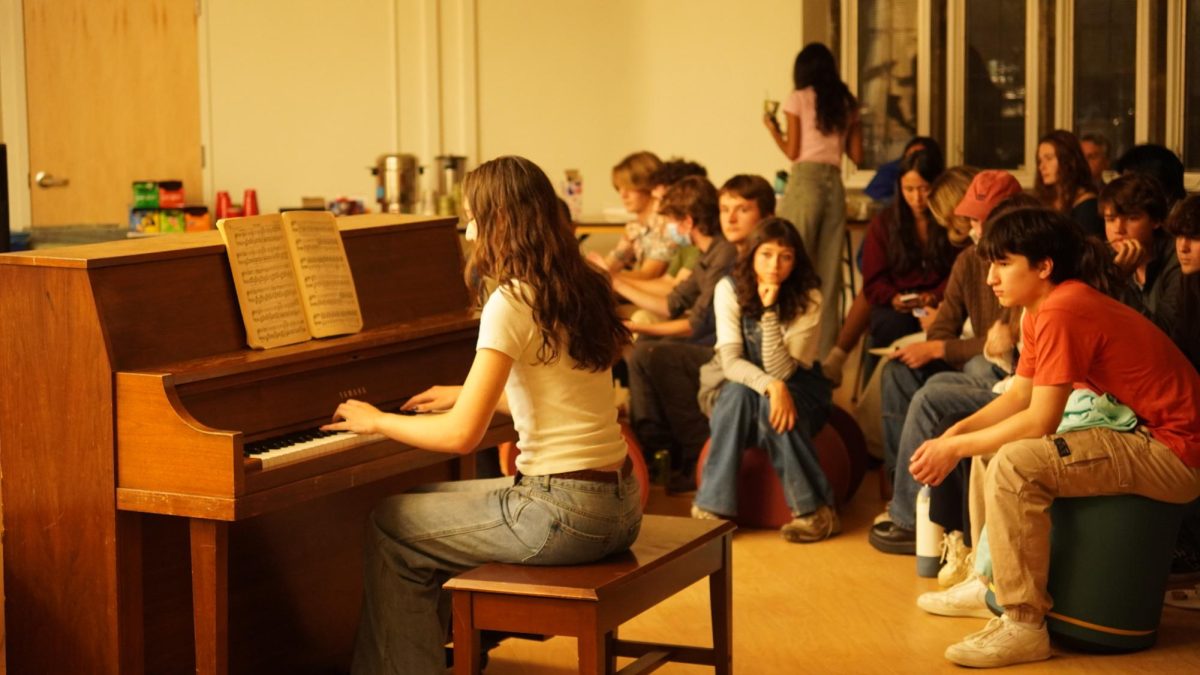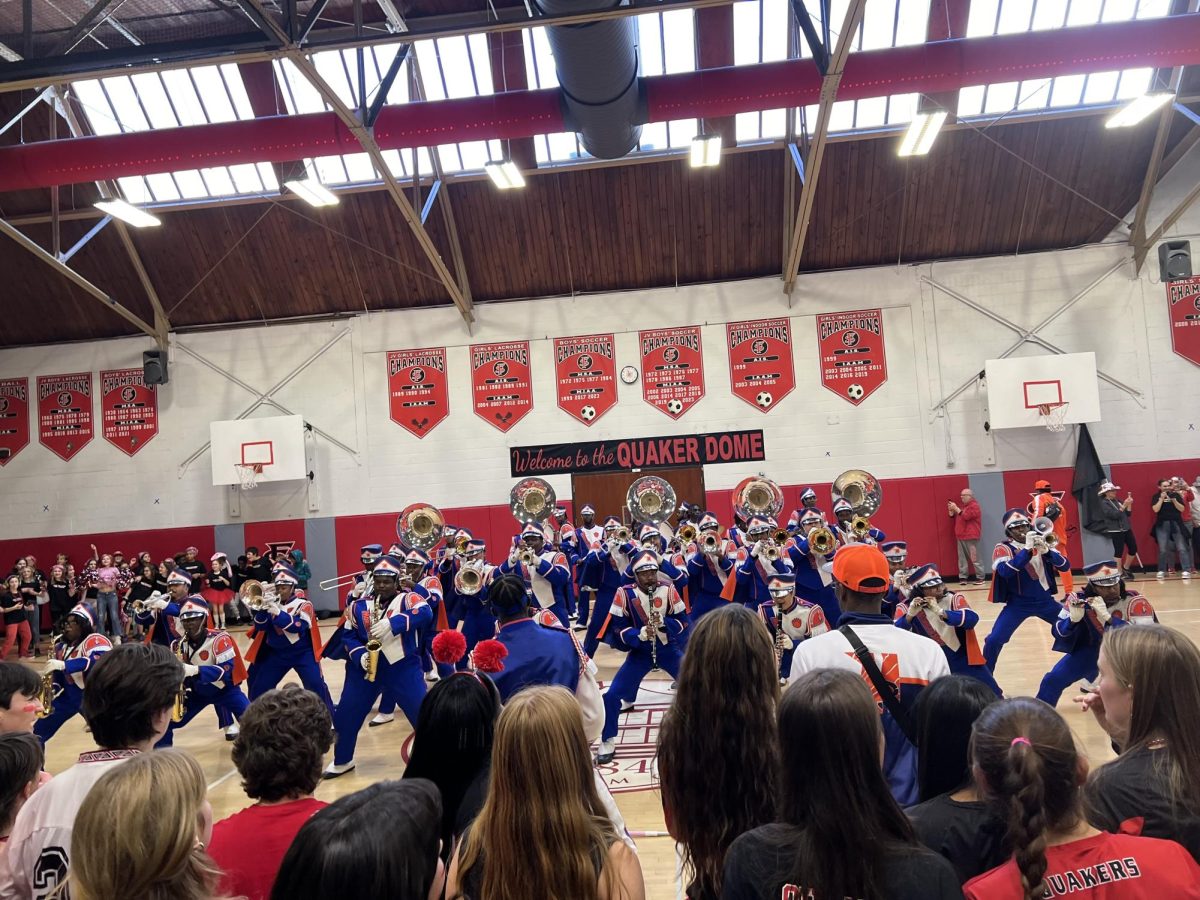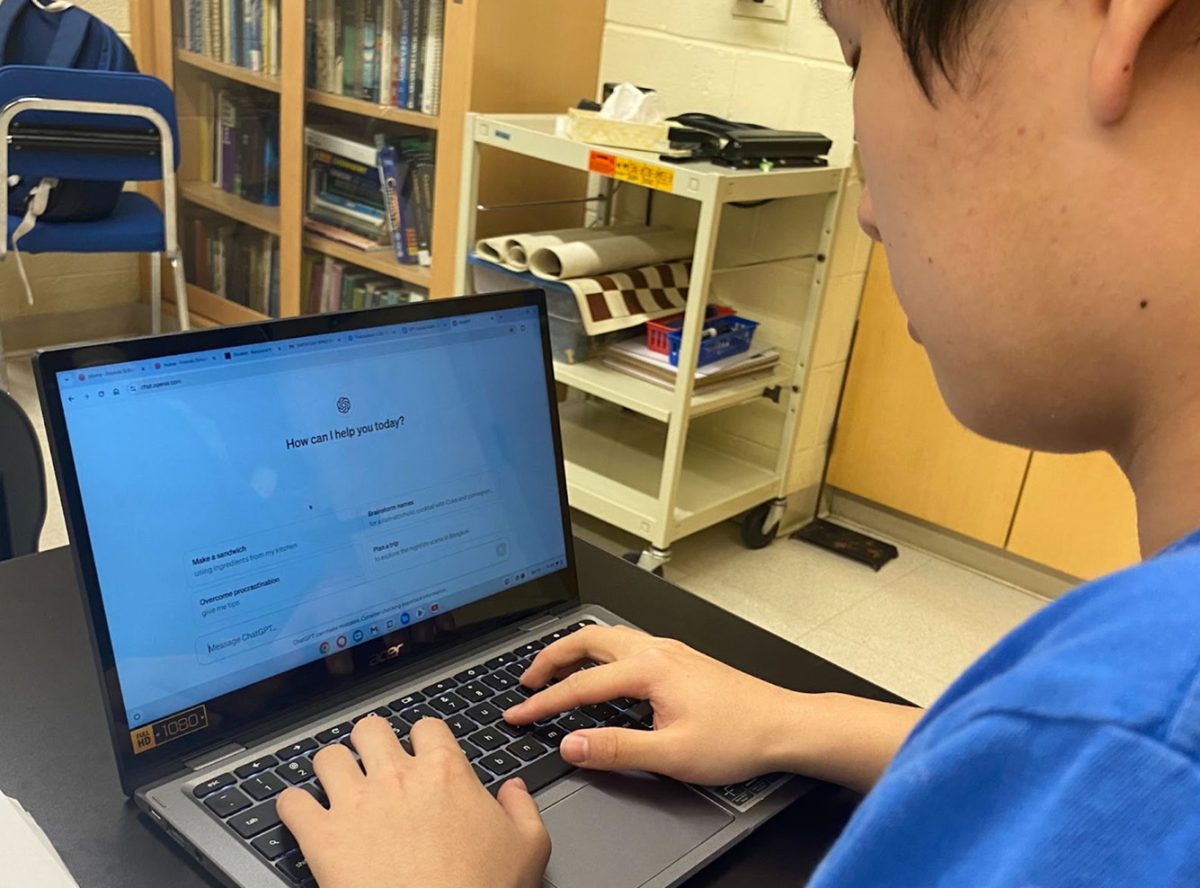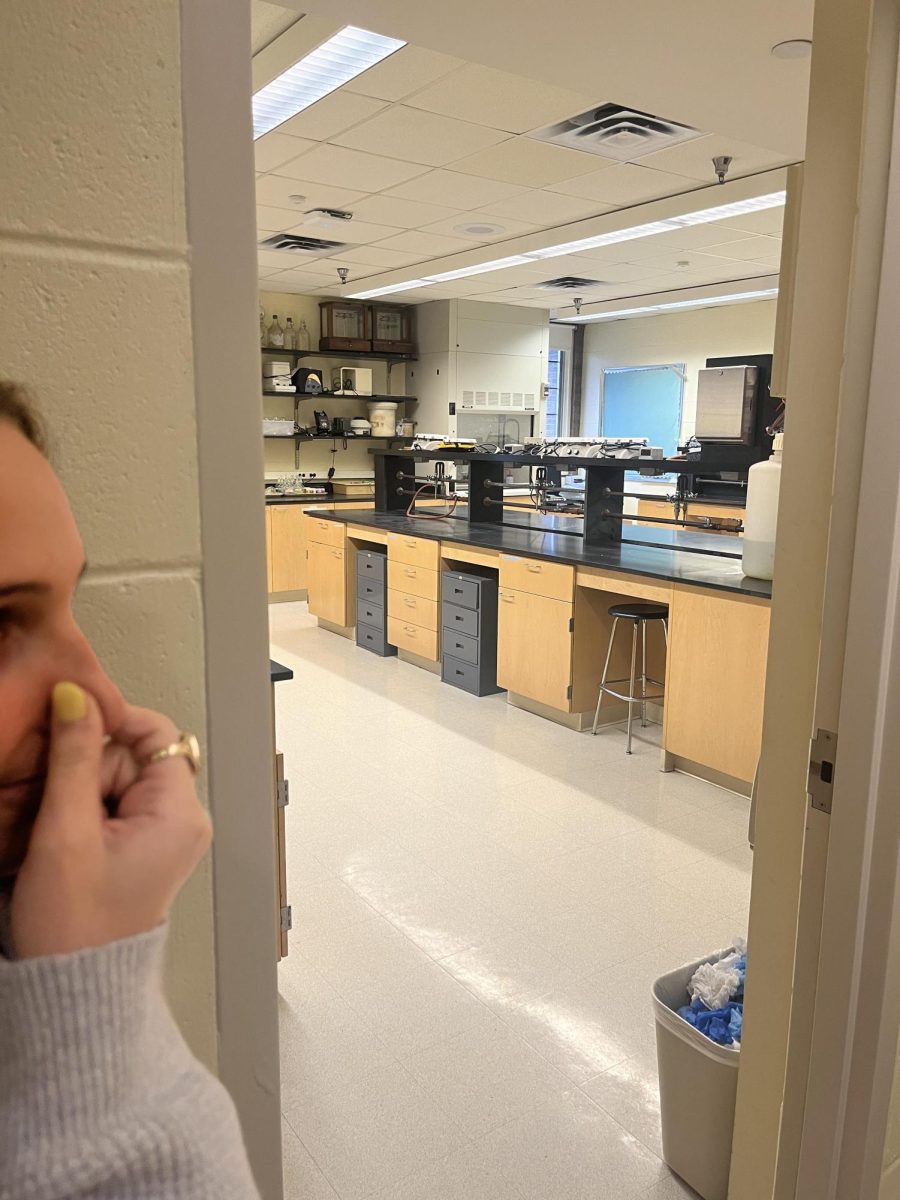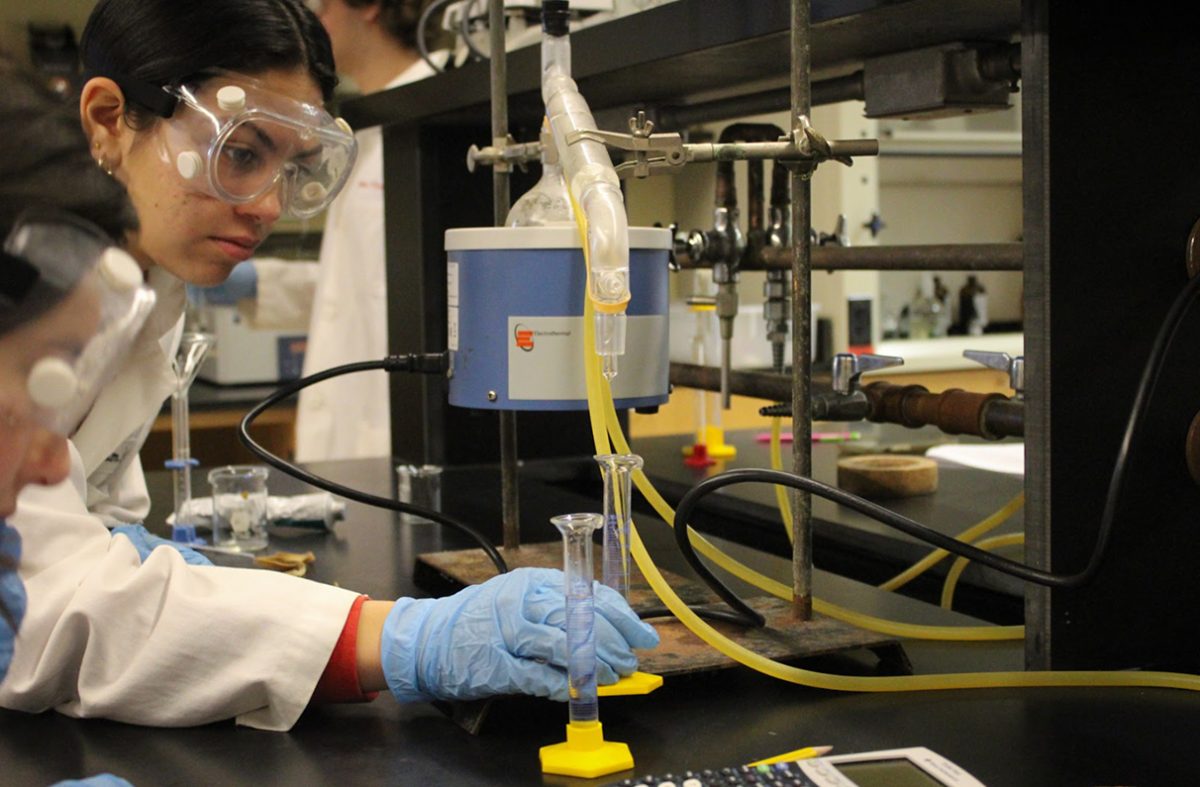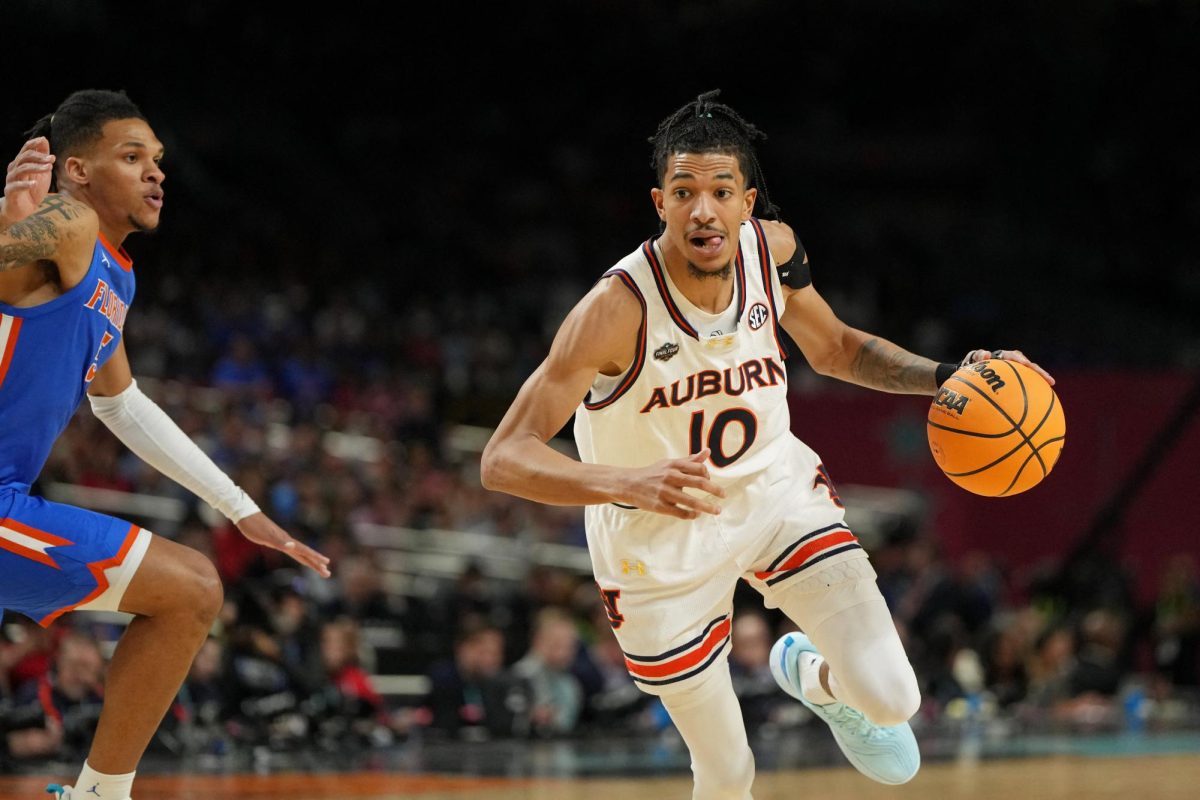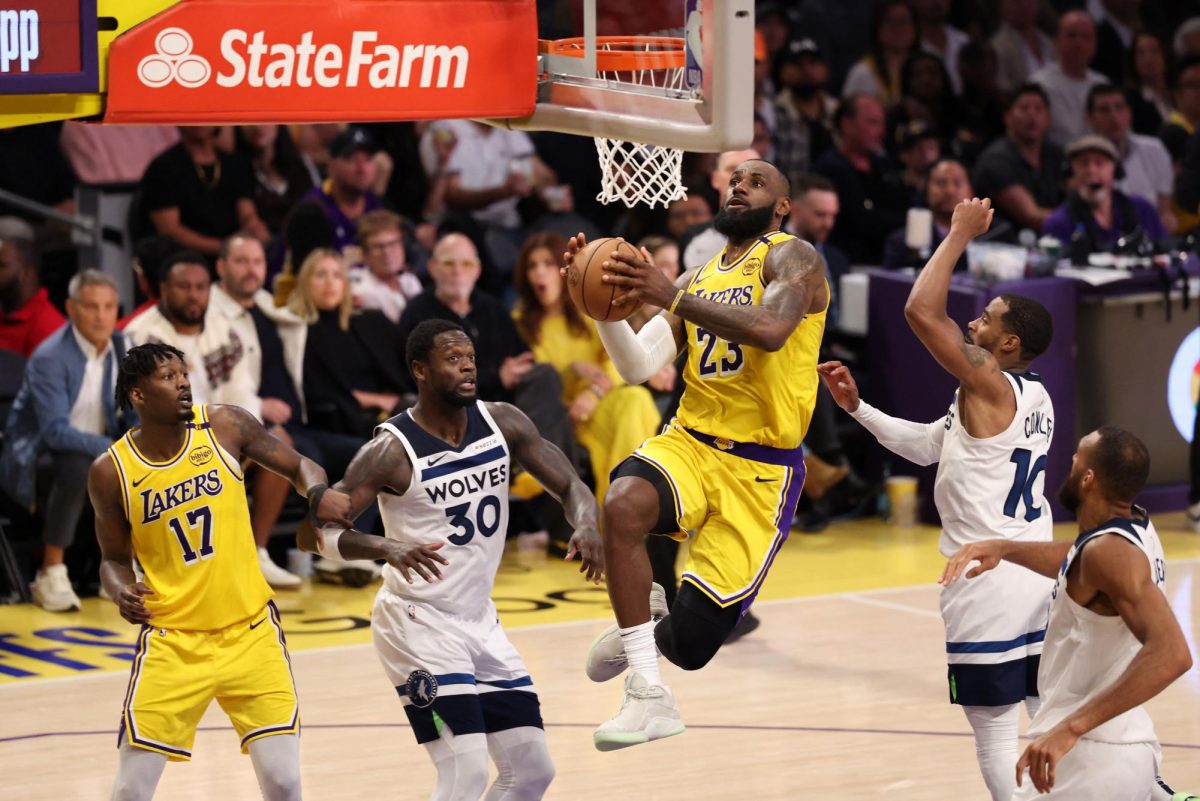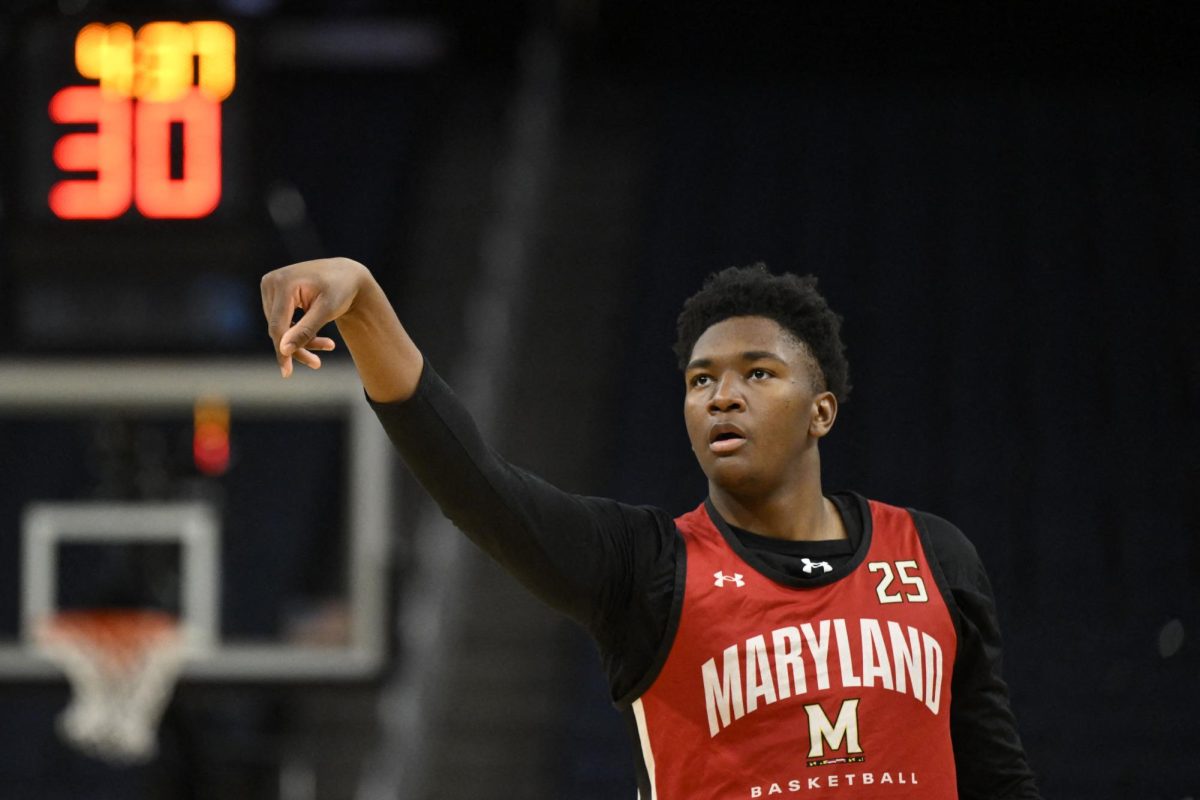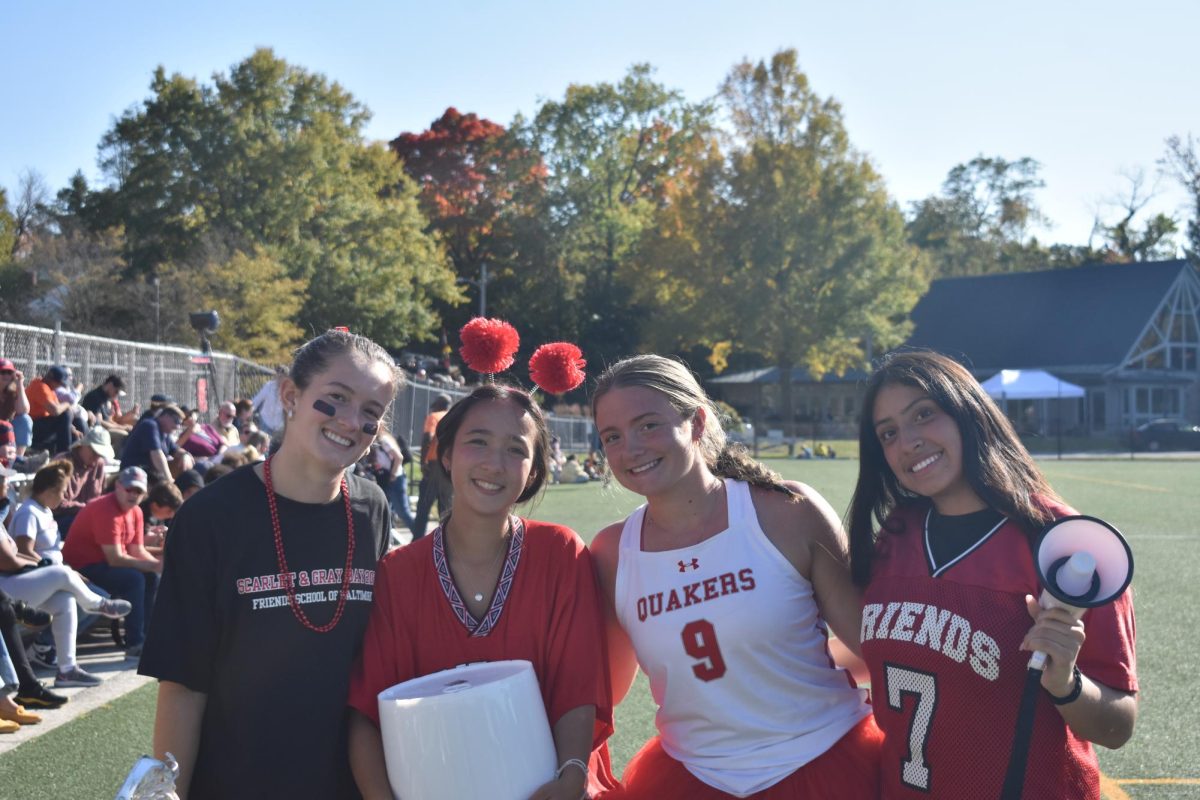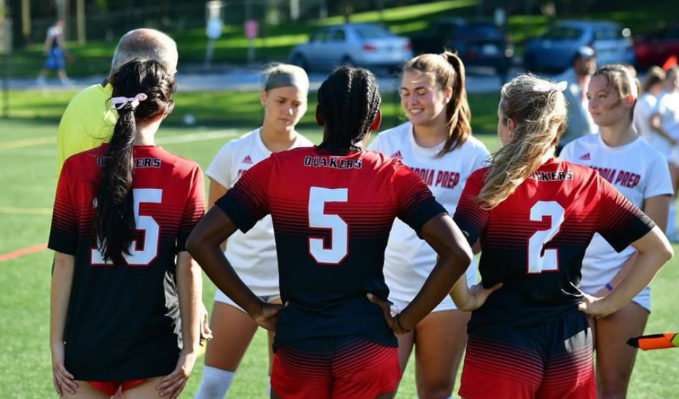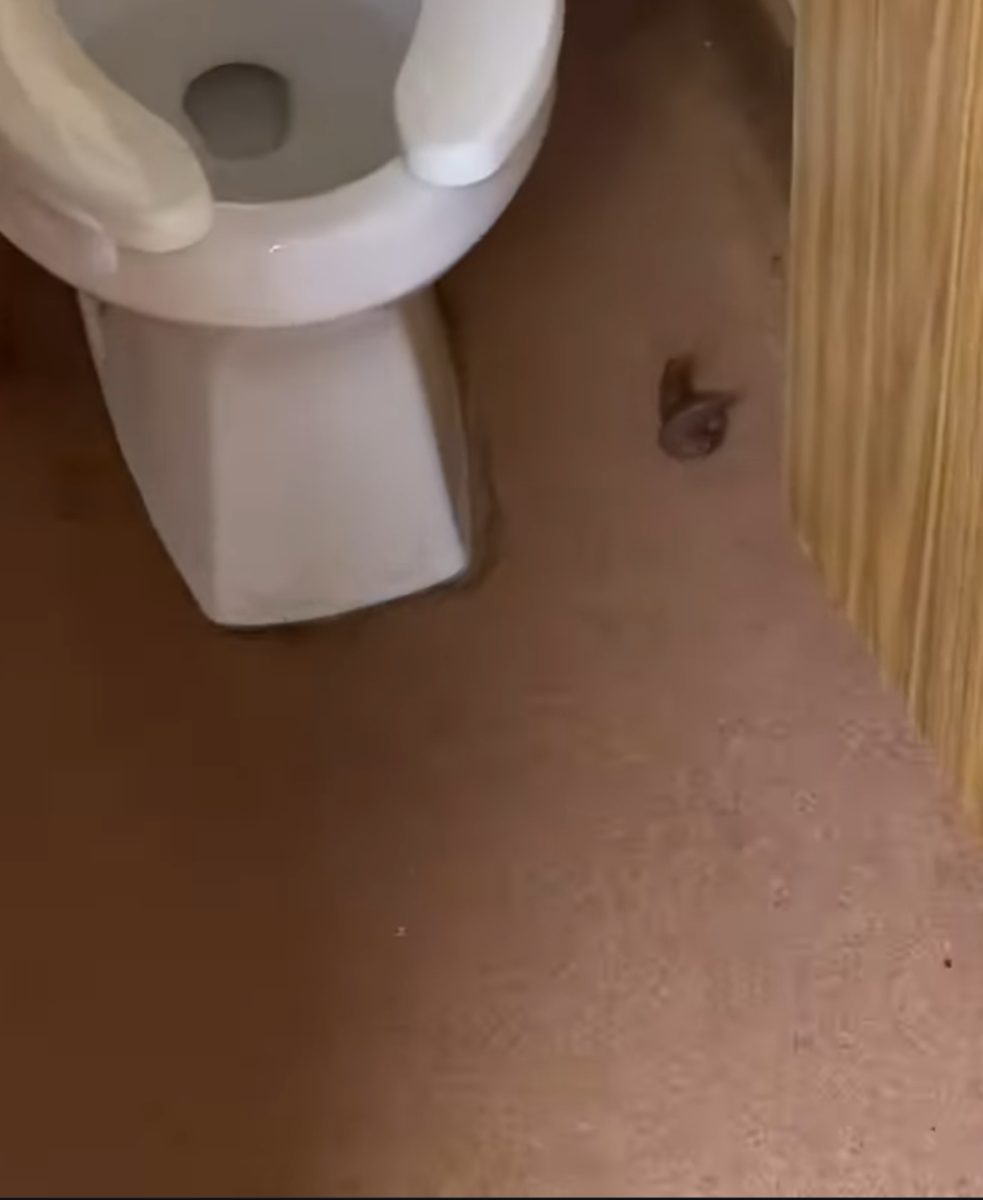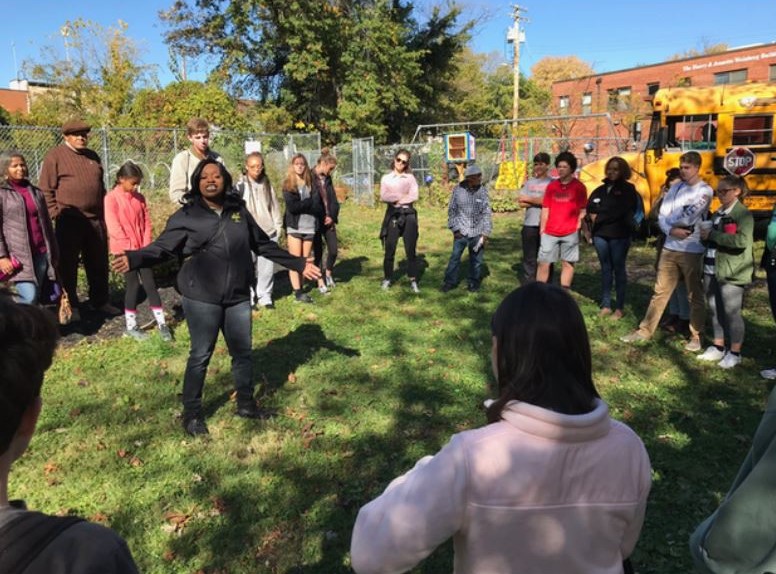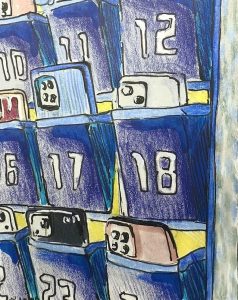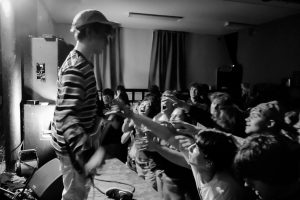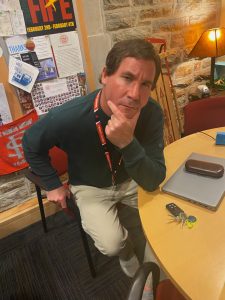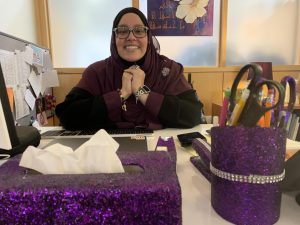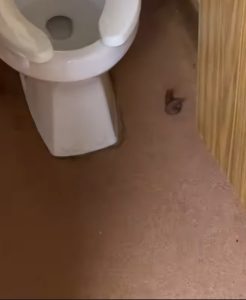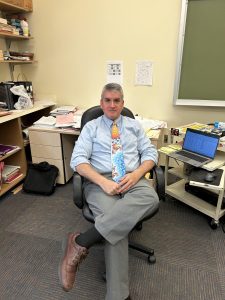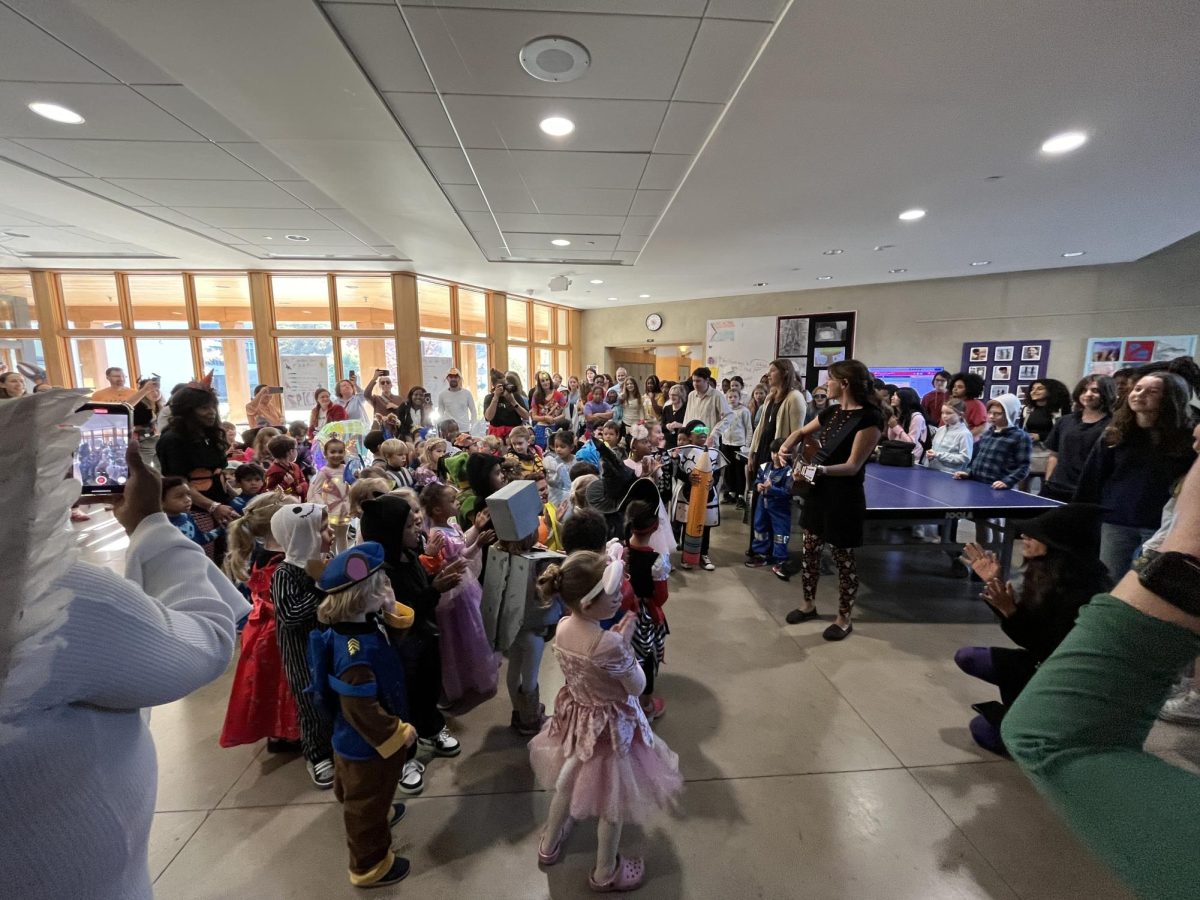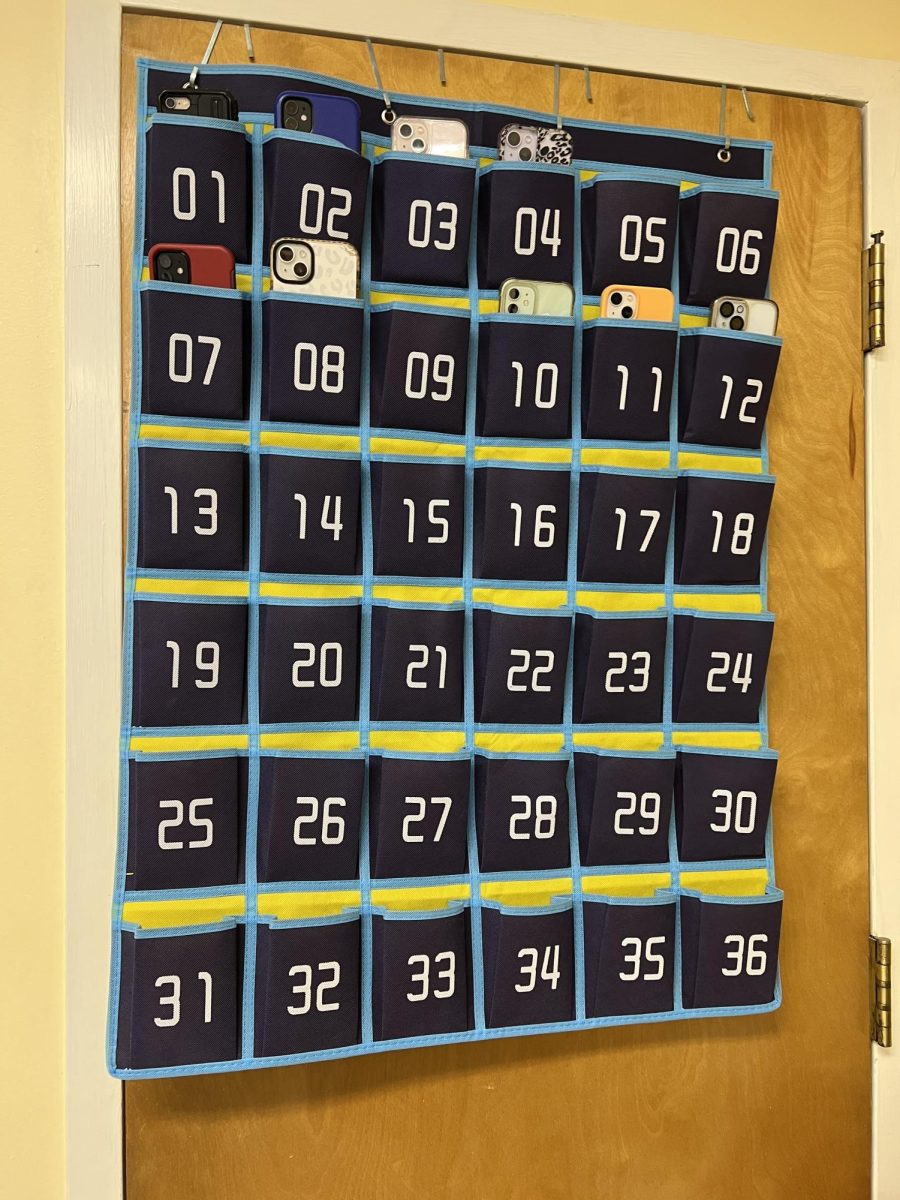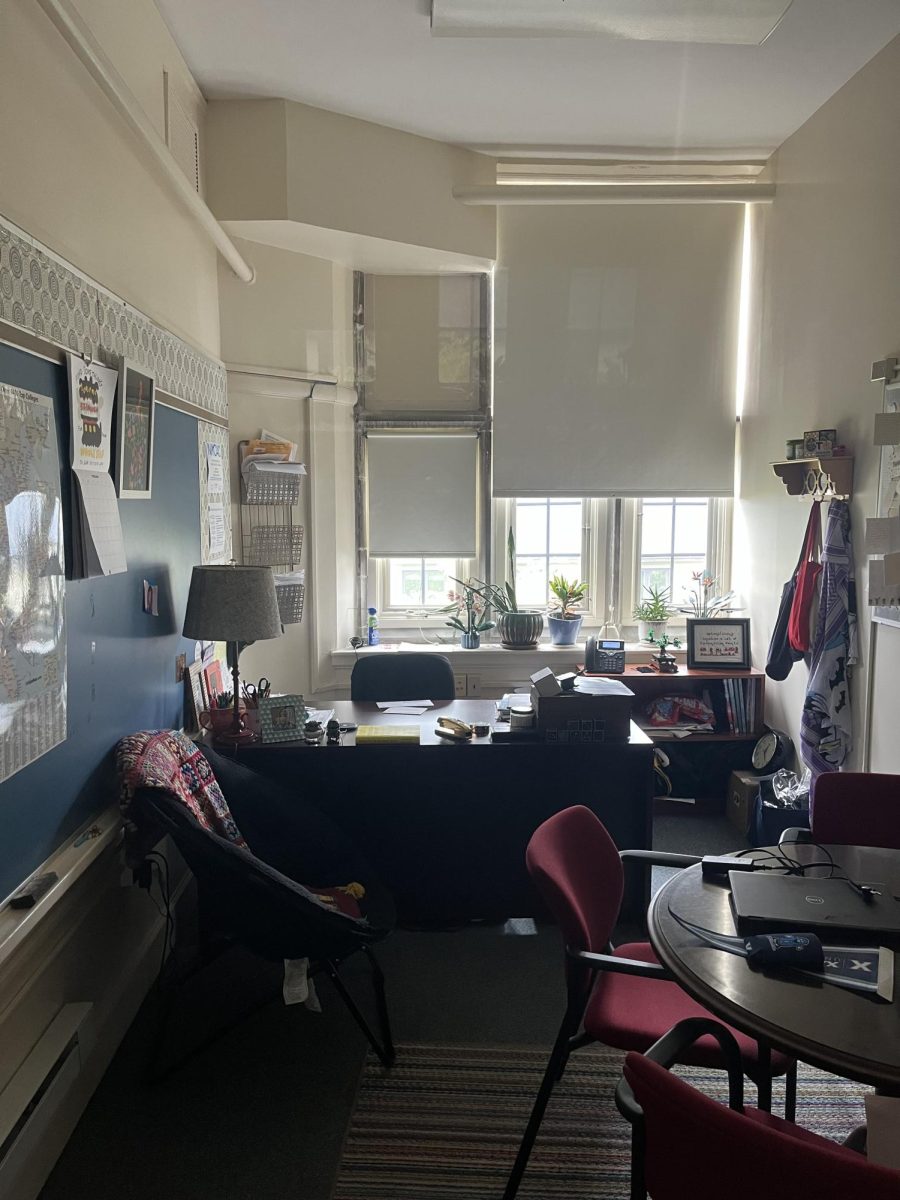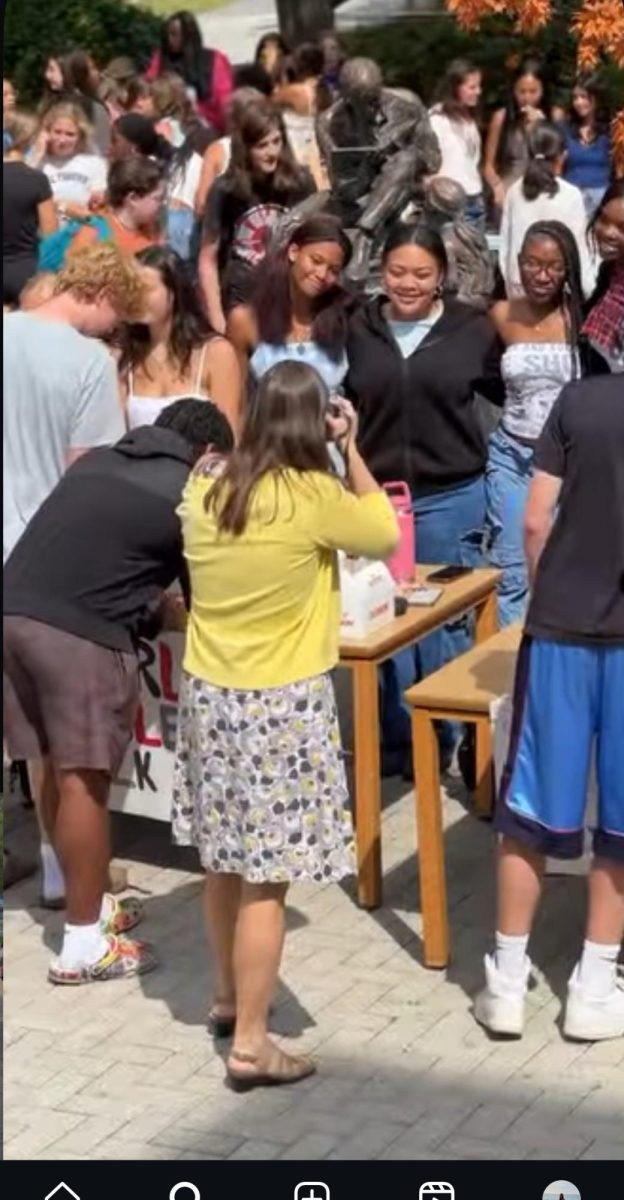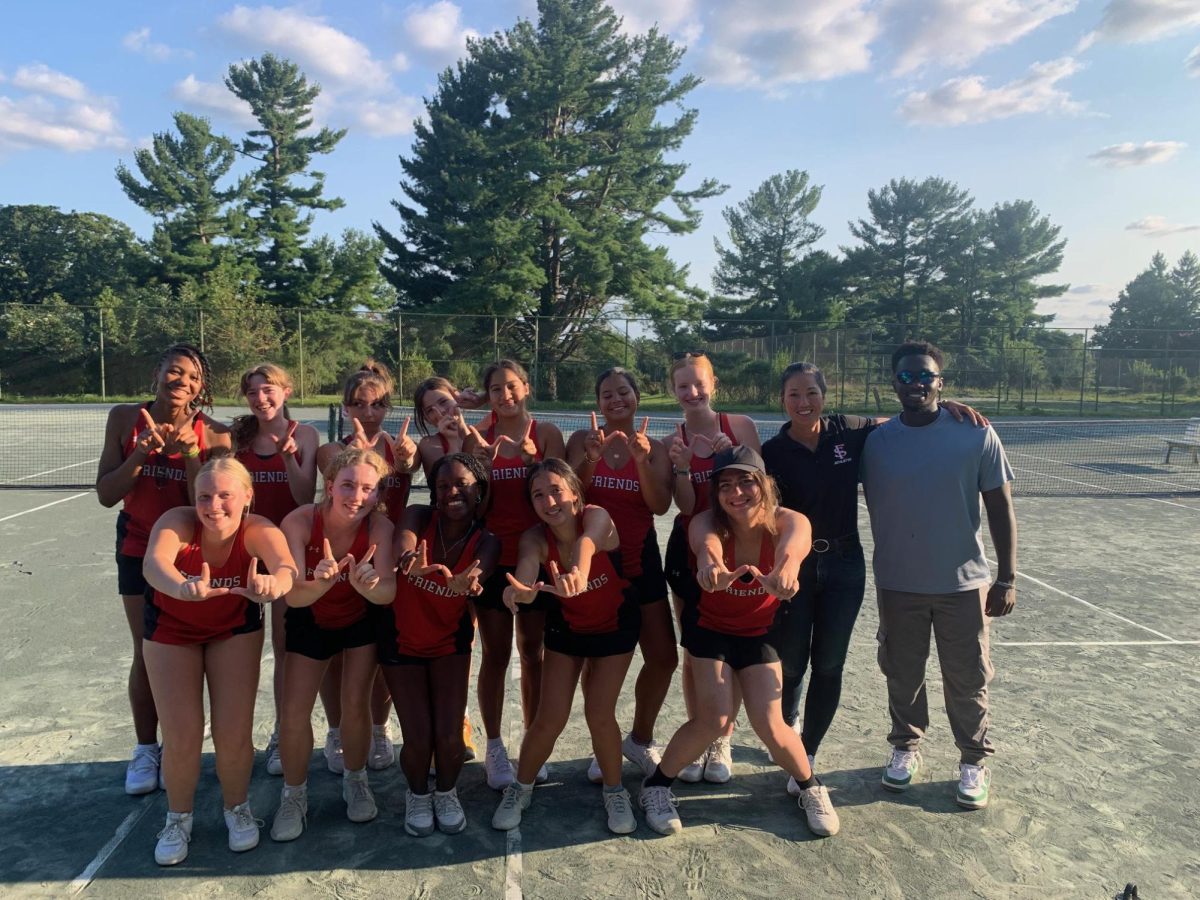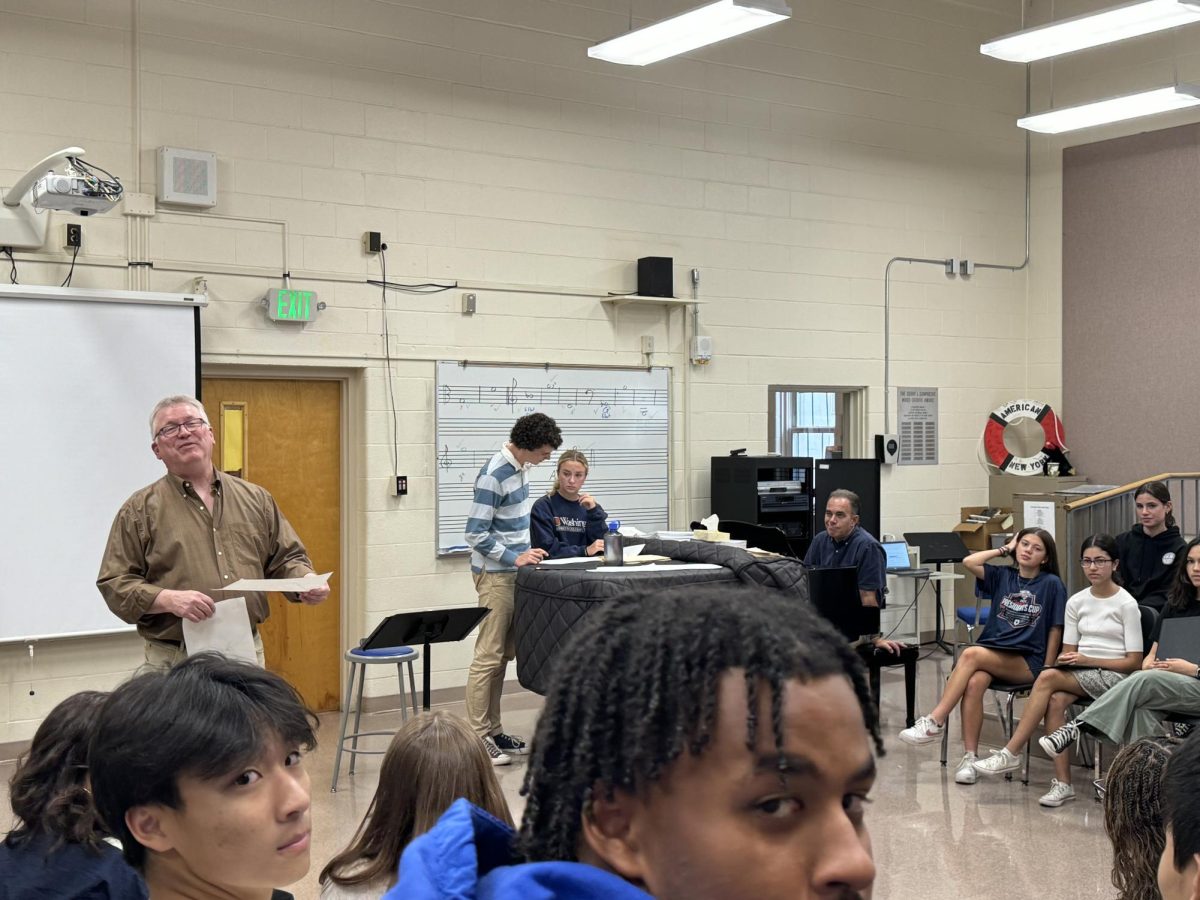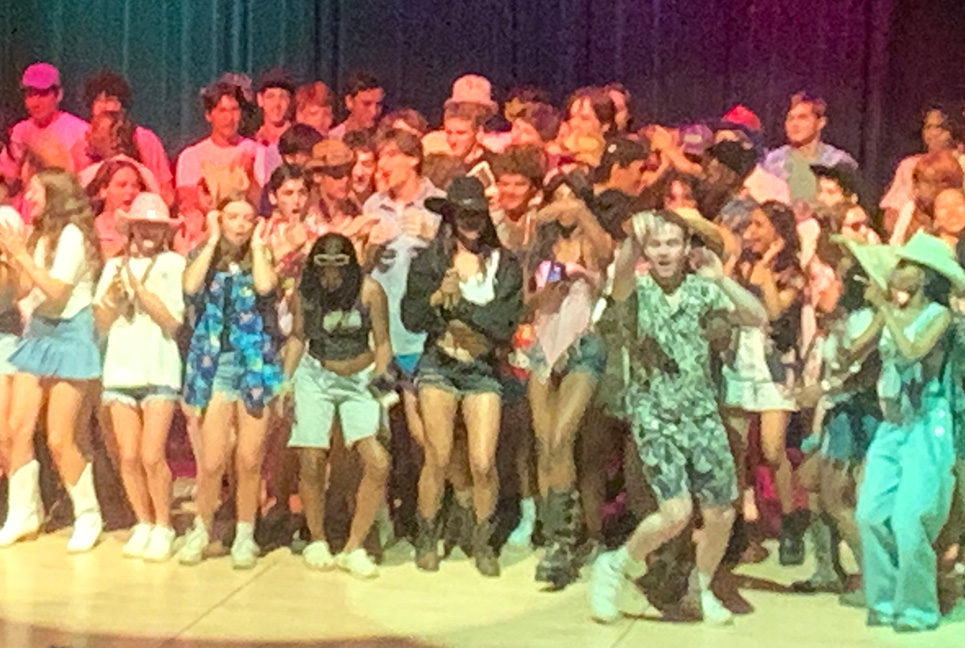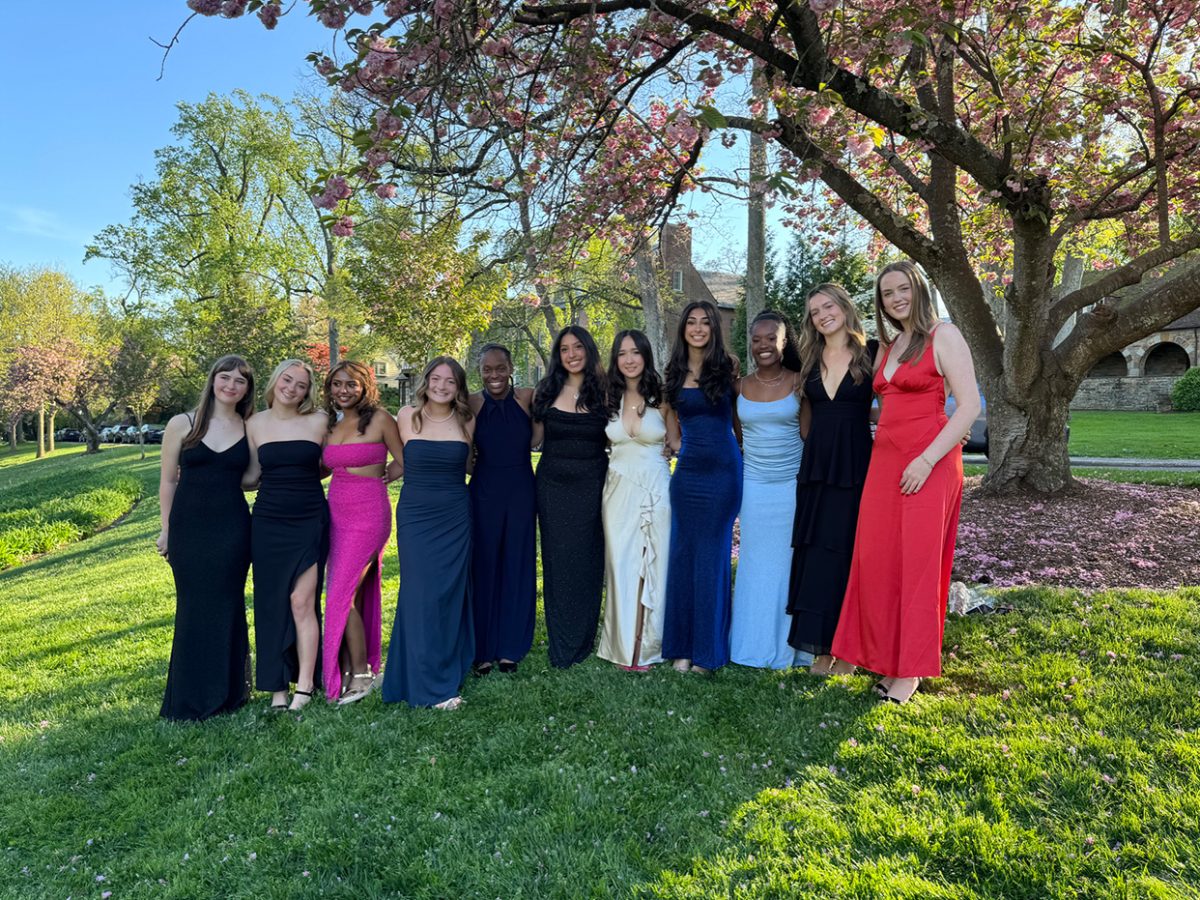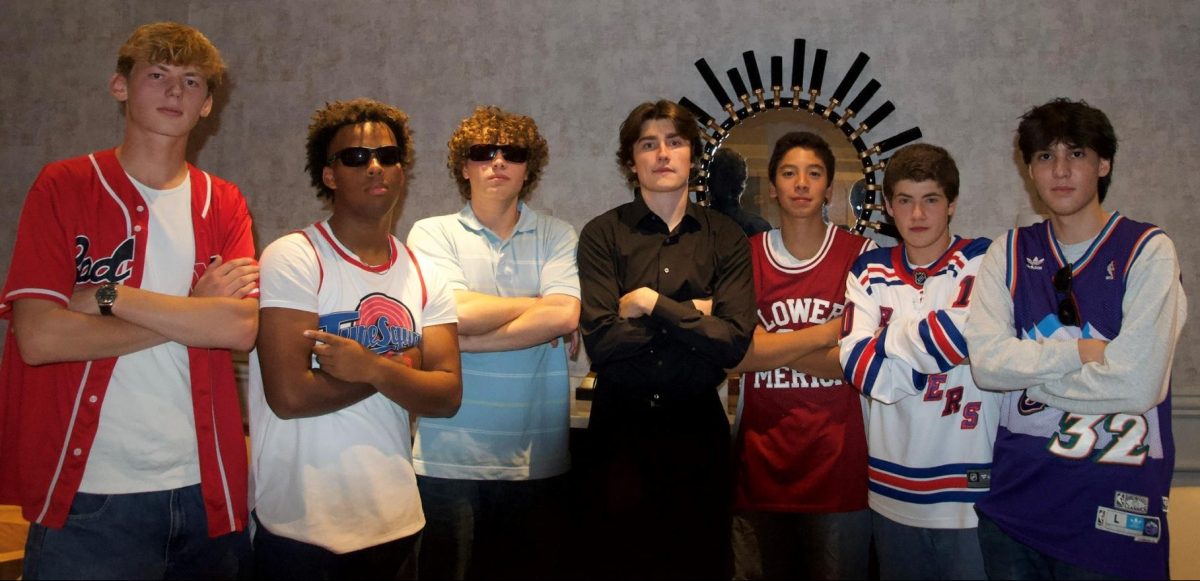Students Captivated by Ecojustice Opportunities in Baltimore
Middle and Upper Schoolers learned about environmental racism and public health on an eye-opening retreat in low-income areas of Baltimore city.
The ecojustice retreat in action
February 10, 2020
On October 24, Upper and Middle School students had the opportunity to go on an Ecojustice Retreat.
The day started with a bus tour around inner-city Baltimore, led by Glen Ross, a community leader in East Baltimore. The tour included stops at brownfields (possibly contaminated, unused land), illegal dumping sites, vacant buildings, and other environmental hazards in poorer Baltimore neighborhoods. Students learned about Baltimore’s environmental racism and public health disparities within various communities.
After Glen Ross’s tour, the day continued with a trip to the Recovery Garden of Glenwood Life Counseling Center with Precious Fraling, who was a client at the center and is now the head of the client advocacy team. This garden is in Woodbourne-McCabe, a poor, diverse neighborhood in northeast Baltimore. The Recovery Garden replaced two barren lots across the street from the center. Friends School students got to hear Fraling’s recovery story, and how the garden contributed to her healing. The garden is not only therapeutic for clients at Glenwood Life Counseling, but also provides valuable resources for residents of the community.
The group spent the afternoon at Pleasant Hope Baptist church where they heard from Reverend Heber Brown III about food insecurity. The church has set up a food security network which anyone in the community can participate in.
Reverend Brown gave the students an activity: try to purchase healthy food items from a grocery list in the neighborhood’s store. When the students returned, almost all students had not found any of the items. This is because the nearby stores carry mainly unhealthy foods. Reverend Brown saw this problem, and works with others to establish popup farm stands to sell produce at churches on days and times when the congregation normally gathers.
“There is often a presumption that environmentalism is just something that wealthy, white people are involved in, but the environmental movement itself is changing, and I want that to be the way that Friends students think about environmental justice,” says Friends English teacher Joshua Ratner, who helped organize and chaperone the retreat.
This retreat provided interested students with more knowledge on the topic, and more importantly, with ideas about how the can make a difference in their own communities.
As a participant of the ecojustice retreat myself, my main take-away from the day was something that Rev. Brown said during his presentation: “critique what is, create what should be.”
After our morning was spent seeing what people are critiquing currently, the afternoon was spent learning about some people who took the next step and started to create what they thought should be. It was powerful to see people put their ideas into action and that their actions had a powerful impact on others. It laid the groundwork for future projects and partnerships that the students at Friends and local communities could be involved in so that we too, can make an impact.
Biology teacher Katherine Jenkins, another organizer and chaperone, said, “The ecojustice retreat early on in the year is just the spark for continued work throughout the year.”

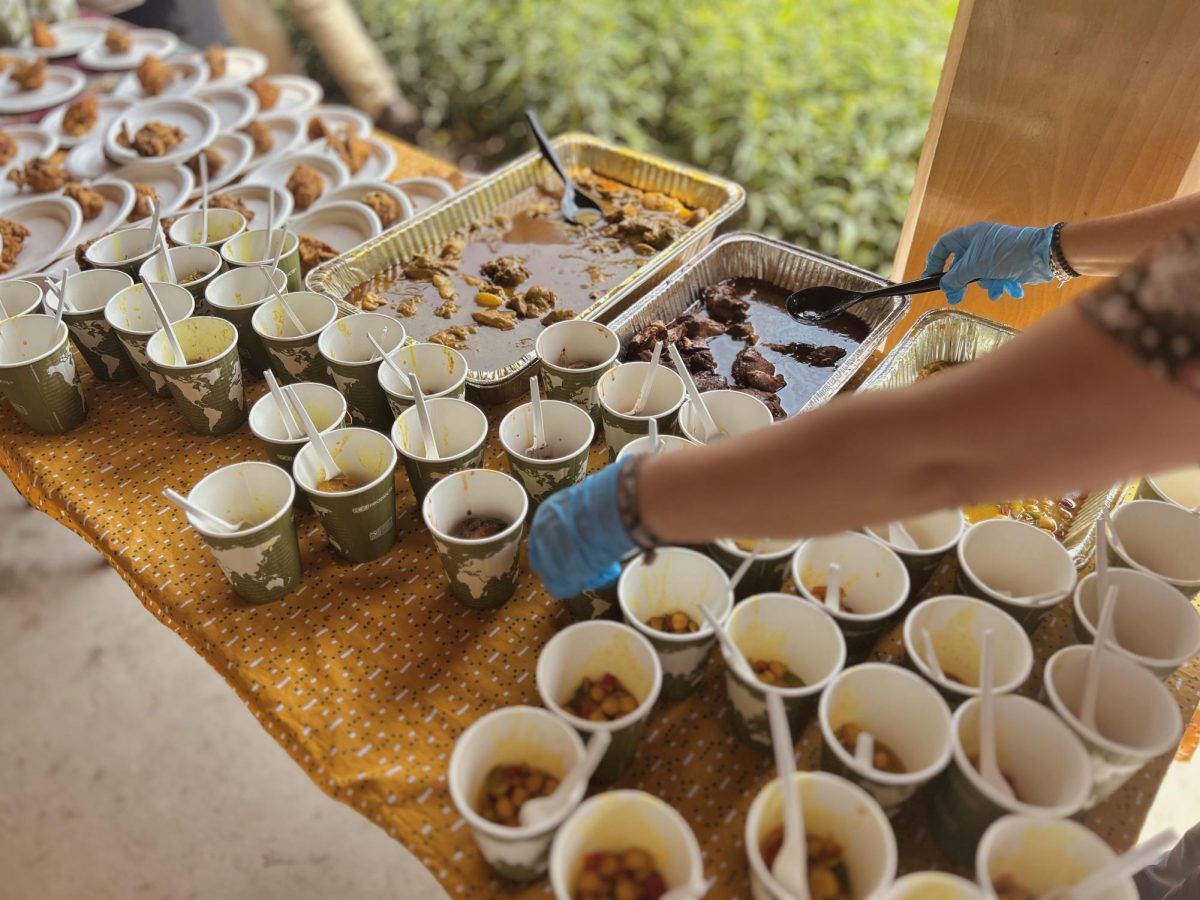
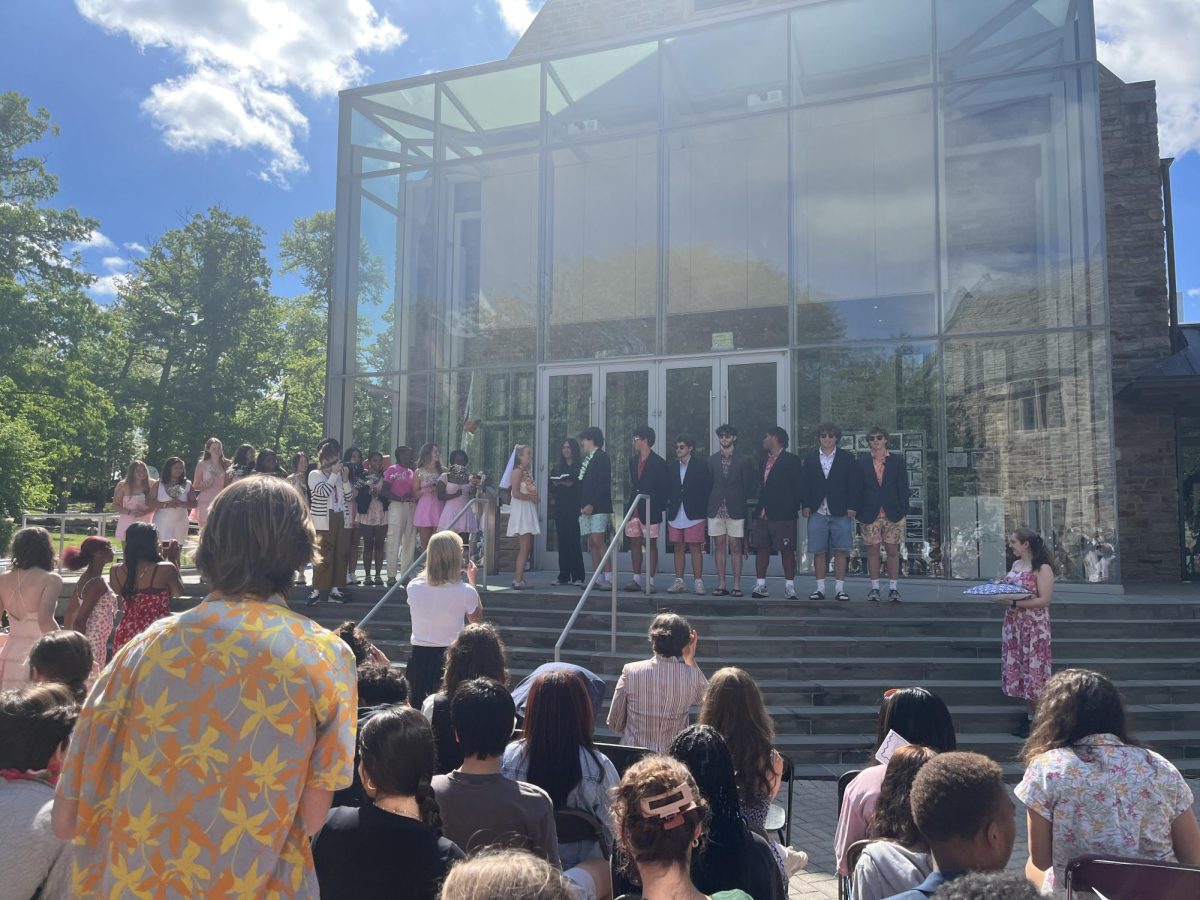
![A Phone Ban at Friends? [Podcast]](https://thequakerquill.org/wp-content/uploads/2025/05/magenta-VrRT19_ZjUY-unsplash-1200x900.jpg)
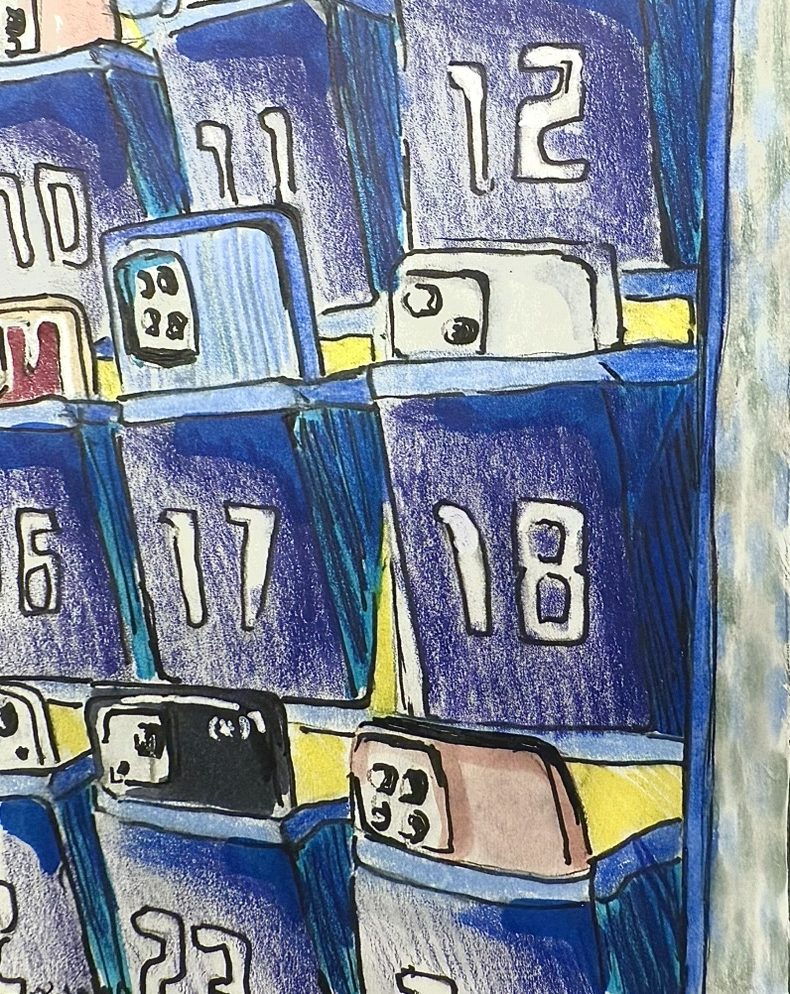


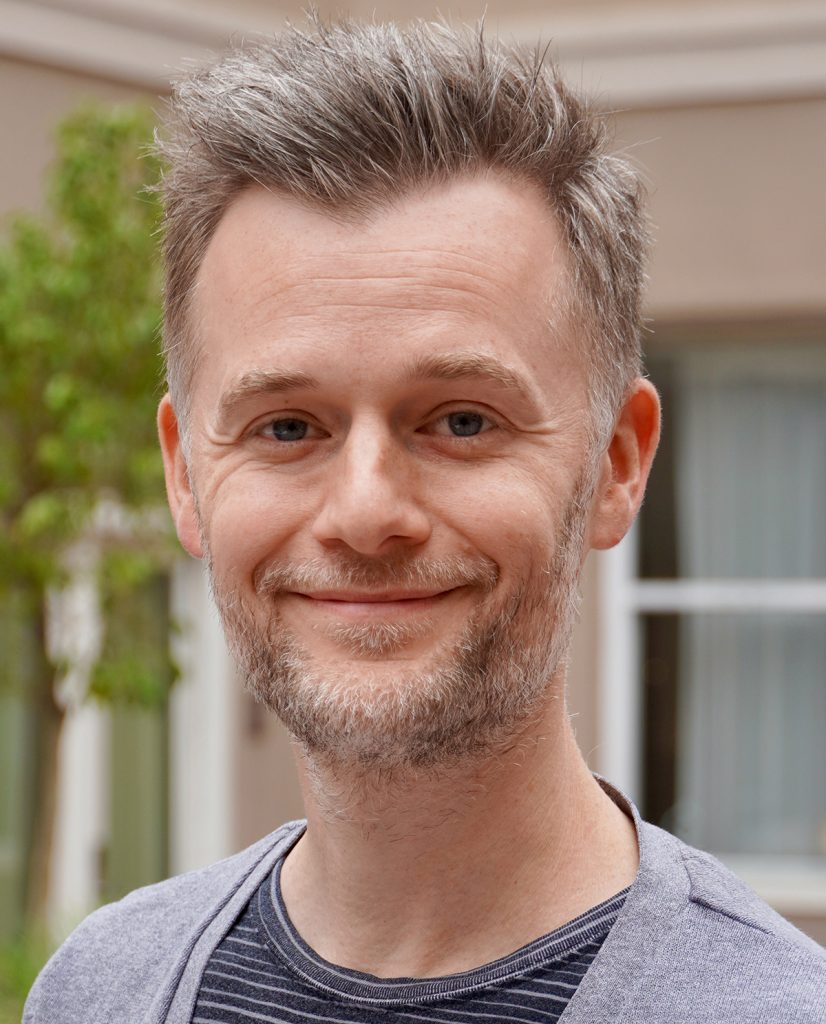

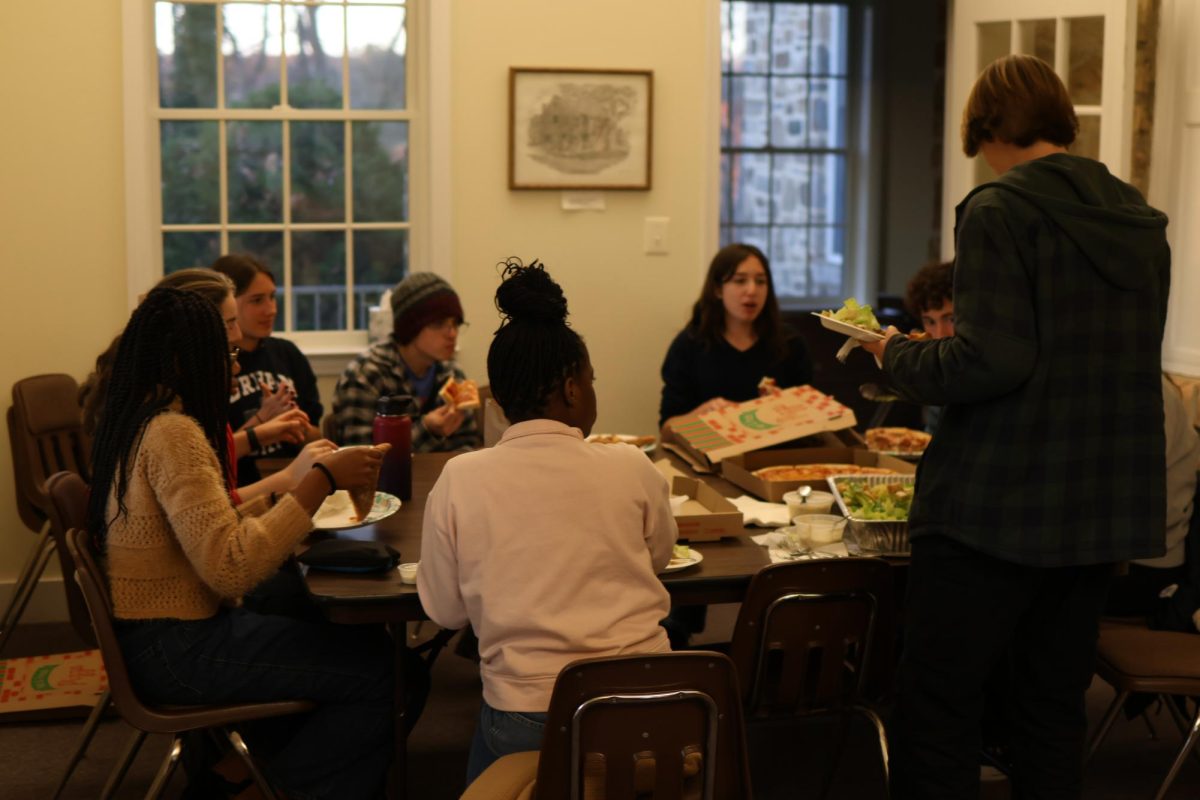

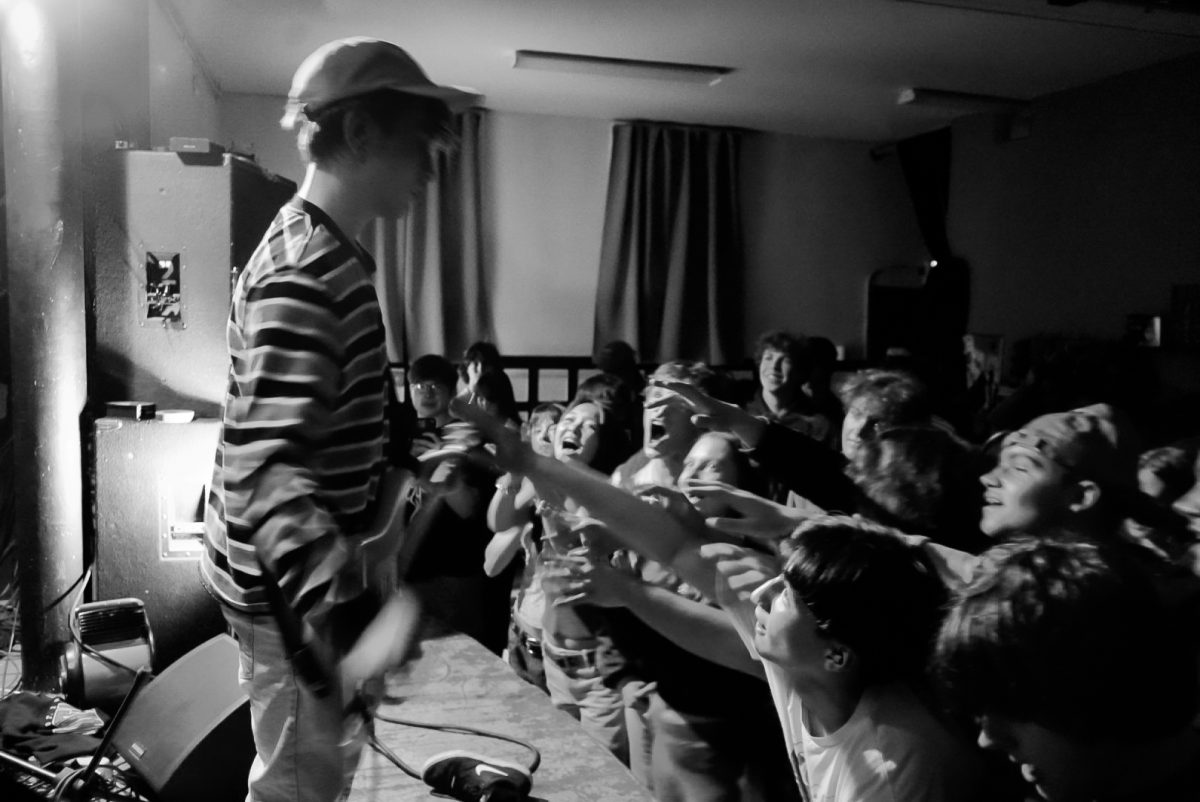
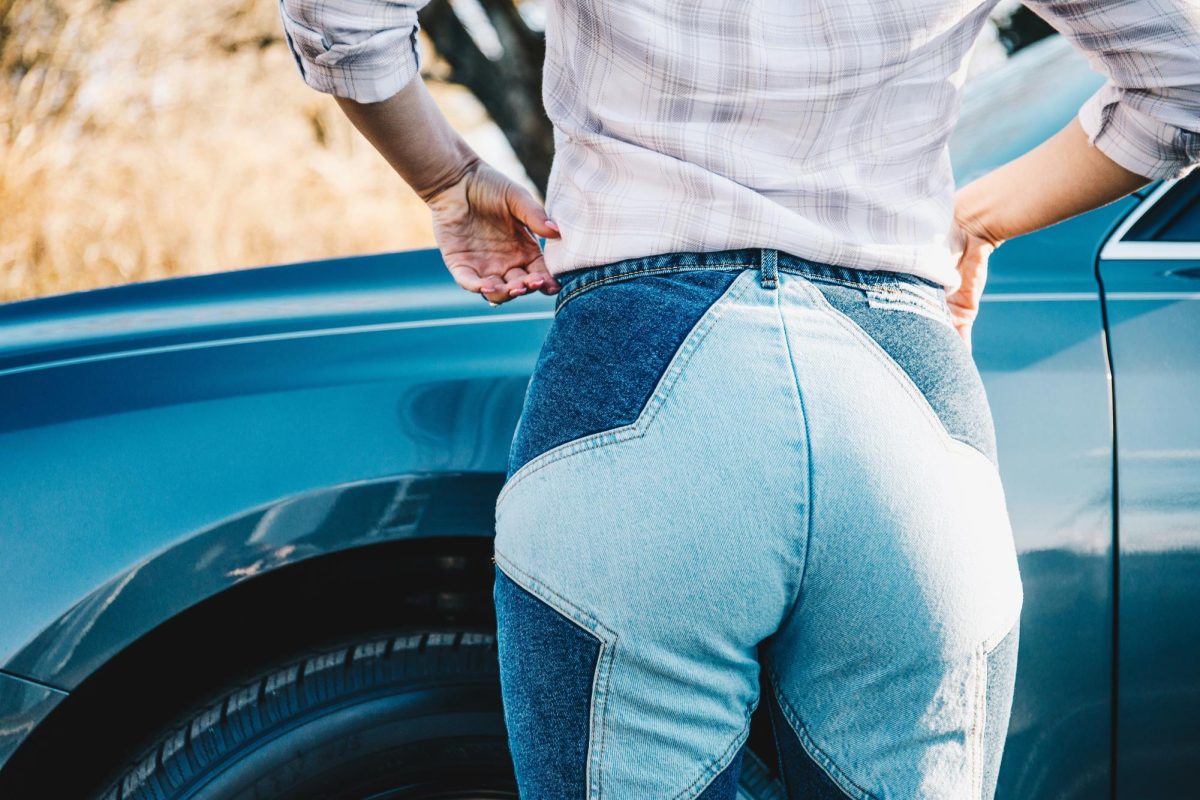
![How Freestyle Club Began [Podcast]](https://thequakerquill.org/wp-content/uploads/2025/05/charly-alvarez-Jv9untmB7G4-unsplash-1200x800.jpg)
